Historical Fiction
- You are here:
- HOME
- Books Management
- Historical Fiction

You love history. You love history ebooks. But, you also love fiction--and you're not afraid to admit it. Why not have the best of both worlds? Authors who promote their Historical Fiction ebooks on our website always do so for free or at a discounted price. Bestsellers, new releases, and authors you'll be glad to have discovered. See the past through the eyes of these creative heroes!
Definition of "Historical Fiction Genre": The most important part of ebooks in this genre are their settings. Yes, characters and plot matter. But, beyond all else, the details associated with the setting must be accurate. This takes a tremendous amount of research and familiarity from the authors who delve into this genre of ebooks. These ebooks can focus on actual historical figures, or they can insert more fictionalized elements into the plot. It is always a balancing act between the history and fiction, and is something the best authors in this genre navigate with aplomb.
Some examples of bestselling ebooks in the Historical Fiction genre are Erik Larson (Devil in the White City), Margaret Mitchell (Gone With the Wind), Patrick O'Brian (Aubrey/Maturin Novels), and Mary Renault (The Persian Boy).
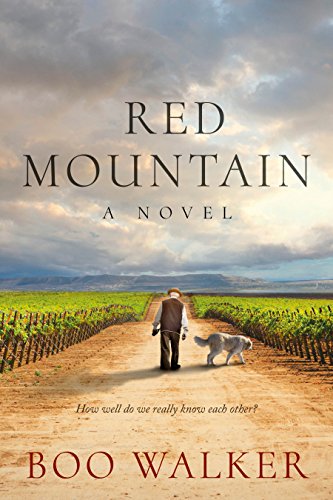
"Best book I've read in over 50 years... since A Tree Grows in Brooklyn." - LibraMystic
*A Pulpwood Queens Book Club Selection and Amazon Charts Bestseller
How well do we really know each other?
Red Mountain in eastern Washington is home to a community of eccentrics.
Otis Till, the area's visionary winemaker, has been known to howl at the moon--fully nude.
Single mother Margot Pierce moved across the country to build an inn, but so far all she does is binge on gelato, the Hallmark Channel, and fantasies of murdering her ex.
High school senior Emilia Forester is the daughter of celebrity parents struggling to build her own life outside of their shadow.
And Brooks Baker is a man haunted by his past spent living on the streets as an orphan. Somehow, everyone lives together harmoniously, their lives intertwined like the vines in Red Mountain's beautiful and renowned vineyards.
But in a place where everyone knows each other, secrets are like poison...and right now Otis, Margot, Emilia, and Brooks all have something to hide. When their secrets come to light and dysfunction ignites, will their small mountain be stronger for it--or will lives be torn apart?
Heartfelt, briskly paced, and wonderfully descriptive, Red Mountain is the story of four complicated people living in a beautiful landscape unlike anywhere else. Told from multiple perspectives and rich with vivid descriptions of wine life, this novel will transport you from the first page to the last.
For a free copy of the upcoming Red Mountain Chronicles cookbook, visit Boo's website.
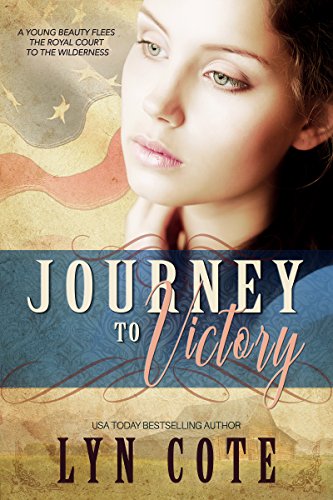
A young beauty flees the French royal court to the American wilderness~
In the early 1770's, Christiane Pelletier, an extraordinarily beautiful young woman, is next in a line of courtesans who have been favorites at the French court during the reigns of two monarchs. Yet she longs to be the beloved wife of one man, not a lovely piece of human art passed from one noble to another. And the winds of change are sweeping Europe.
Christiane flees France with her renegade father. In the Canadian wilderness, she survives the shock of leaving a life of wealth and privilege. To escape frontier violence, she moves southward only to become involved in the burgeoning American Revolution.
Daughter of a French courtesan to frontier wife to companion of Lady Washington, Christiane moves into the heart of the American rebel elite. But one man in her life can never be forgotten. Once he was her friend. Now he has become her enemy. Will he become her destiny? Only God knows.
The late prolific reviewer Harriet Klausner gave the print edition 5 stars: "Book one of the Patriots and Seekers Revolutionary War era thriller is a great tale due to a strong cast and held together by a wonderful brave protagonist. Readers obtain a taste of life in the rebellious colonies through the trials and triumphs of courageous Christiane."
Authentic history with historic figures in the cast. Rated PG13 for adult situations and mild violence.
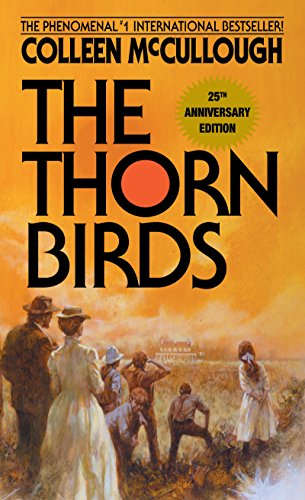
“Beautiful….Compelling entertainment.”
—New York Times
“A heart-rending epic…truly marvelous.”
—Chicago Tribune
One of the most beloved novels of all time, The Thorn Birds, Colleen McCullough’s sweeping family saga of dreams, titanic struggles, dark passions, and forbidden love in the Australian Outback, returns to enthrall a new generation.
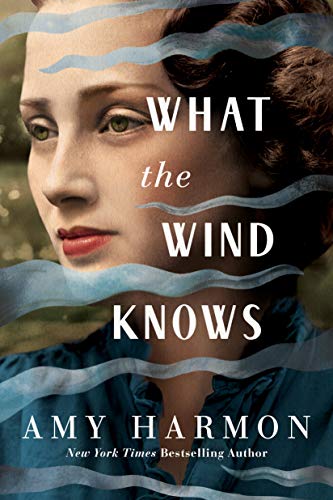
An Amazon Charts and Washington Post bestseller.
In an unforgettable love story, a woman’s impossible journey through the ages could change everything…
Anne Gallagher grew up enchanted by her grandfather’s stories of Ireland. Heartbroken at his death, she travels to his childhood home to spread his ashes. There, overcome with memories of the man she adored and consumed by a history she never knew, she is pulled into another time.
The Ireland of 1921, teetering on the edge of war, is a dangerous place in which to awaken. But there Anne finds herself, hurt, disoriented, and under the care of Dr. Thomas Smith, guardian to a young boy who is oddly familiar. Mistaken for the boy’s long-missing mother, Anne adopts her identity, convinced the woman’s disappearance is connected to her own.
As tensions rise, Thomas joins the struggle for Ireland’s independence and Anne is drawn into the conflict beside him. Caught between history and her heart, she must decide whether she’s willing to let go of the life she knew for a love she never thought she’d find. But in the end, is the choice actually hers to make?
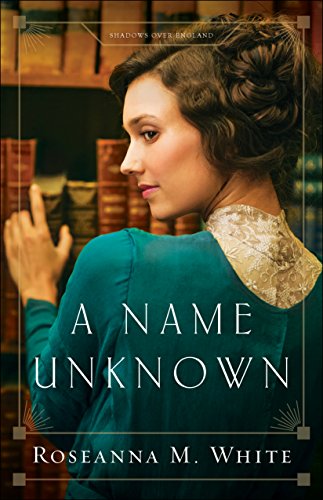
Edwardian Romance and History Gains a Twist of Suspense
Rosemary Gresham has no family beyond the band of former urchins that helped her survive as a girl in the mean streets of London. Grown now, they concentrate on stealing high-value items and have learned how to blend into upper-class society. But when Rosemary must determine whether a certain wealthy gentleman is loyal to Britain or to Germany, she is in for the challenge of a lifetime. How does one steal a family's history, their very name?
Peter Holstein, given his family's German blood, writes his popular series of adventure novels under a pen name. With European politics boiling and his own neighbors suspicious of him, Peter debates whether it might be best to change his name for good. When Rosemary shows up at his door pretending to be a historian and offering to help him trace his family history, his question might be answered.
But as the two work together and Rosemary sees his gracious reaction to his neighbors' scornful attacks, she wonders if her assignment is going down the wrong path. Is it too late to help him prove that he's more than his name?
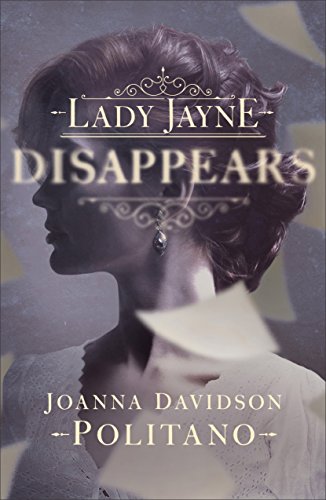
When Aurelie Harcourt's father dies in debtor's prison, he leaves her just two things: his wealthy family, whom she has never met, and his famous pen name, Nathaniel Droll. Her new family greets her with apathy and even resentment. Only the quiet houseguest, Silas Rotherham, welcomes her company.
When Aurelie decides to complete her father's unfinished serial novel, writing the family into the story as unflattering characters, she must keep her identity as Nathaniel Droll hidden while searching for the truth about her mother's disappearance--and perhaps even her father's death.
Author Joanna Davidson Politano's stunning debut set in Victorian England will delight readers with its highly original plot, lush setting, vibrant characters, and reluctant romance.

NATIONAL BEST SELLER
From the internationally acclaimed, best-selling author of The English Patient: a mesmerizing new novel that tells a dramatic story set in the decade after World War II through the lives of a small group of unexpected characters and two teenagers whose lives are indelibly shaped by their unwitting involvement.
In a narrative as beguiling and mysterious as memory itself--shadowed and luminous at once--we read the story of fourteen-year-old Nathaniel, and his older sister, Rachel. In 1945, just after World War II, they stay behind in London when their parents move to Singapore, leaving them in the care of a mysterious figure named The Moth. They suspect he might be a criminal, and they grow both more convinced and less concerned as they come to know his eccentric crew of friends: men and women joined by a shared history of unspecified service during the war, all of whom seem, in some way, determined now to protect, and educate (in rather unusual ways) Rachel and Nathaniel. But are they really what and who they claim to be? And what does it mean when the siblings' mother returns after months of silence without their father, explaining nothing, excusing nothing? A dozen years later, Nathaniel begins to uncover all that he didn't know and understand in that time, and it is this journey--through facts, recollection, and imagination--that he narrates in this masterwork from one of the great writers of our time.
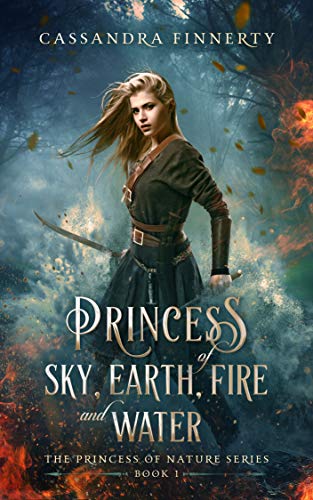
Princess of Sky, Earth, Fire and Water
In 1772, Lady Aisling inherits an army of men and a fleet of merchant ships.
But her greatest legacy is her new powers -- the ability to control sky, earth, fire and water.
Thrust into a new world, she is now part of a secret society, serving as ambassador to kings and courts around the globe.
Hurled onto distant shores, she meets her greatest challenge - a warrior prince whose love is so fierce that it threatens to destroy both their lives.
Together, they face ruthless enemies and royal intrigue, fighting for their very survival, and a chance for enduring love.
If you like fantasy, action-adventure and romance, you'll love this novel by Cassandra Finnerty.
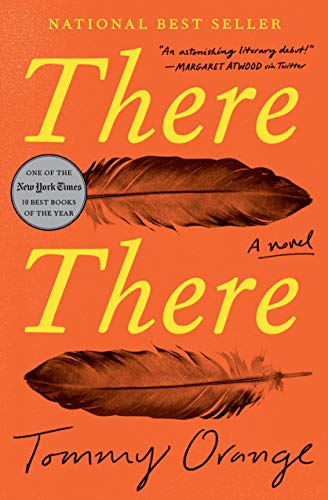
ONE OF THE 10 BEST BOOKS OF THE YEAR—THE NEW YORK TIMES BOOK REVIEW
WINNER OF THE CENTER FOR FICTION FIRST NOVEL PRIZE
One of the Best Books of the Year: The Washington Post, NPR, Time, O, The Oprah Magazine, San Francisco Chronicle, Entertainment Weekly, The Dallas Morning News, Buzzfeed, BookPage, Publishers Weekly, Library Journal, Kirkus Reviews
NEW YORK TIMES BEST-SELLER
Tommy Orange’s “groundbreaking, extraordinary” (The New York Times) There There is the “brilliant, propulsive” (People Magazine) story of twelve unforgettable characters, Urban Indians living in Oakland, California, who converge and collide on one fateful day. It’s “the year’s most galvanizing debut novel” (Entertainment Weekly).
As we learn the reasons that each person is attending the Big Oakland Powwow—some generous, some fearful, some joyful, some violent—momentum builds toward a shocking yet inevitable conclusion that changes everything. Jacquie Red Feather is newly sober and trying to make it back to the family she left behind in shame. Dene Oxendene is pulling his life back together after his uncle’s death and has come to work at the powwow to honor his uncle’s memory. Opal Viola Victoria Bear Shield has come to watch her nephew Orvil, who has taught himself traditional Indian dance through YouTube videos and will to perform in public for the very first time. There will be glorious communion, and a spectacle of sacred tradition and pageantry. And there will be sacrifice, and heroism, and loss.
There There is a wondrous and shattering portrait of an America few of us have ever seen. It’s “masterful . . . white-hot . . . devastating” (The Washington Post) at the same time as it is fierce, funny, suspenseful, thoroughly modern, and impossible to put down. Here is a voice we have never heard—a voice full of poetry and rage, exploding onto the page with urgency and force. Tommy Orange has written a stunning novel that grapples with a complex and painful history, with an inheritance of beauty and profound spirituality, and with a plague of addiction, abuse, and suicide. This is the book that everyone is talking about right now, and it’s destined to be a classic.
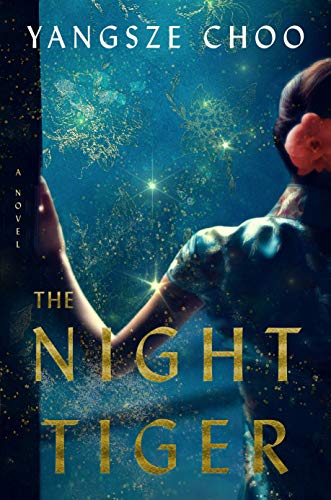
INSTANT NEW YORK TIMES BESTSELLER
“A sumptuous garden maze of a novel that immerses readers in a complex, vanished world.” —Kirkus (starred review)
An utterly transporting novel set in 1930s colonial Malaysia, perfect for fans of Isabel Allende and Min Jin Lee
Quick-witted, ambitious Ji Lin is stuck as an apprentice dressmaker, moonlighting as a dancehall girl to help pay off her mother’s Mahjong debts. But when one of her dance partners accidentally leaves behind a gruesome souvenir, Ji Lin may finally get the adventure she has been longing for.
Eleven-year-old houseboy Ren is also on a mission, racing to fulfill his former master’s dying wish: that Ren find the man’s finger, lost years ago in an accident, and bury it with his body. Ren has 49 days to do so, or his master’s soul will wander the earth forever.
As the days tick relentlessly by, a series of unexplained deaths racks the district, along with whispers of men who turn into tigers. Ji Lin and Ren’s increasingly dangerous paths crisscross through lush plantations, hospital storage rooms, and ghostly dreamscapes.
Yangsze Choo's The Night Tiger pulls us into a world of servants and masters, age-old superstition and modern idealism, sibling rivalry and forbidden love. But anchoring this dazzling, propulsive novel is the intimate coming-of-age of a child and a young woman, each searching for their place in a society that would rather they stay invisible.
"A work of incredible beauty... Astoundingly captivating and striking... A transcendent story of courage and connection." —Booklist (starred review)

NEW YORK TIMES BESTSELLER • For readers of The Nightingale and Sarah’s Key, inspired by the life of a real World War II heroine, this remarkable debut novel reveals the power of unsung women to change history in their quest for love, freedom, and second chances.
New York socialite Caroline Ferriday has her hands full with her post at the French consulate and a new love on the horizon. But Caroline’s world is forever changed when Hitler’s army invades Poland in September 1939—and then sets its sights on France.
An ocean away from Caroline, Kasia Kuzmerick, a Polish teenager, senses her carefree youth disappearing as she is drawn deeper into her role as courier for the underground resistance movement. In a tense atmosphere of watchful eyes and suspecting neighbors, one false move can have dire consequences.
For the ambitious young German doctor, Herta Oberheuser, an ad for a government medical position seems her ticket out of a desolate life. Once hired, though, she finds herself trapped in a male-dominated realm of Nazi secrets and power.
The lives of these three women are set on a collision course when the unthinkable happens and Kasia is sent to Ravensbrück, the notorious Nazi concentration camp for women. Their stories cross continents—from New York to Paris, Germany, and Poland—as Caroline and Kasia strive to bring justice to those whom history has forgotten.
USA Today “New and Noteworthy” Book • LibraryReads Top Ten Pick
“Harrowing . . . Lilac illuminates.”—People
“A compelling, page-turning narrative . . . Lilac Girls falls squarely into the groundbreaking category of fiction that re-examines history from a fresh, female point of view. It’s smart, thoughtful and also just an old-fashioned good read.”—Fort Worth Star-Telegram
“A powerful story for readers everywhere . . . Martha Hall Kelly has brought readers a firsthand glimpse into one of history’s most frightening memories. A novel that brings to life what these women and many others suffered. . . . I was moved to tears.”—San Francisco Book Review
“Extremely moving and memorable . . . This impressive debut should appeal strongly to historical fiction readers and to book clubs that adored Kristin Hannah’s The Nightingale and Anthony Doerr’s All the Light We Cannot See.”—Library Journal (starred review)
“[A] compelling first novel . . . This is a page-turner demonstrating the tests and triumphs civilians faced during war, complemented by Kelly’s vivid depiction of history and excellent characters.”—Publishers Weekly
“Kelly vividly re-creates the world of Ravensbrück.”—Kirkus Reviews
“Inspired by actual events and real people, Martha Hall Kelly has woven together the stories of three women during World War II that reveal the bravery, cowardice, and cruelty of those days. This is a part of history—women’s history—that should never be forgotten.”—Lisa See, New York Times bestselling author of China Dolls
“Profound, unsettling, and thoroughly . . . the best book I’ve read all year.”—Jamie Ford, New York Times bestselling author of Hotel on the Corner of Bitter and Sweet

New York Times Notable Book 2018
Romain Gary’s bittersweet final masterpiece, a novel of courage and resistance—never before in English
Now in English for the first time, Romain Gary's final masterpiece begins with Ludo coming of age on a small farm in Normandy, under the care of his eccentric kite-making Uncle Ambrose. Ludo's life changes the day he meets Lila, a girl from the aristocratic Polish family that owns the estate next door. In a single glance, Ludo falls in love forever; Lila, on the other hand, disappears back into the woods. And so begins Ludo's adventure of longing, passion, and steadfast love for the elusive Lila, who begins to reciprocate his feelings just as Europe descends into World War II. After Germany invades Poland, Lila and her family go missing, and Ludo’s devotion to saving her from the Nazis becomes a journey to save his love, his loved ones, his country, and ultimately himself.
Filled with unforgettable characters who, as the war goes on, fling all they have into the fight to keep their hopes—and themselves—alive, The Kites is Romain Gary's poetic call for resistance in whatever form it takes. A war hero himself, Gary embraced and fought for humanity in all its nuanced complexities, in the belief that a hero might be anyone who has the courage to love and hope.

New York Times Notable Book 2018; Foreign Affairs Best Book of 2018; MLA LOIS ROTH AWARD WINNER
An unforgettable German bestseller about the European refugee crisis: “Erpenbeck will get under your skin” (Washington Post Book World)
Go, Went, Gone is the masterful new novel by the acclaimed German writer Jenny Erpenbeck, “one of the most significant German-language novelists of her generation” (The Millions). The novel tells the tale of Richard, a retired classics professor who lives in Berlin. His wife has died, and he lives a routine existence until one day he spies some African refugees staging a hunger strike in Alexanderplatz. Curiosity turns to compassion and an inner transformation, as he visits their shelter, interviews them, and becomes embroiled in their harrowing fates. Go, Went, Gone is a scathing indictment of Western policy toward the European refugee crisis, but also a touching portrait of a man who finds he has more in common with the Africans than he realizes. Exquisitely translated by Susan Bernofsky, Go, Went, Gone addresses one of the most pivotal issues of our time, facing it head-on in a voice that is both nostalgic and frightening.
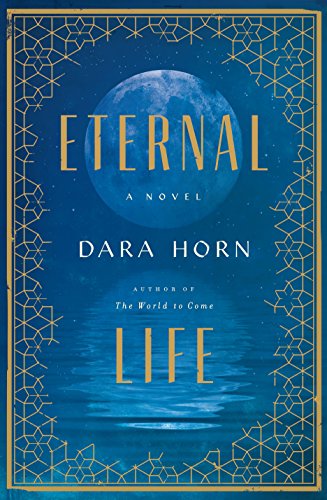
A New York Times Book Review Notable Book of 2018, Booklist Editors’ Choice Book (January 2019), and Chicago Public Library Best Book of 2018
What would it really mean to live forever?
Rachel’s current troubles—a middle-aged son mining digital currency in her basement, a scientist granddaughter trying to peek into her genes—are only the latest in a litany spanning dozens of countries, scores of marriages, hundreds of children, and 2,000 years, going back to Roman-occupied Jerusalem. Only one person shares her immortality: an illicit lover who pursues her through the ages. But when her children develop technologies that could change her fate, Rachel must find a way out. From ancient religion to the scientific frontier, Dara Horn pits our efforts to make life last against the deeper challenge of making life worth living.
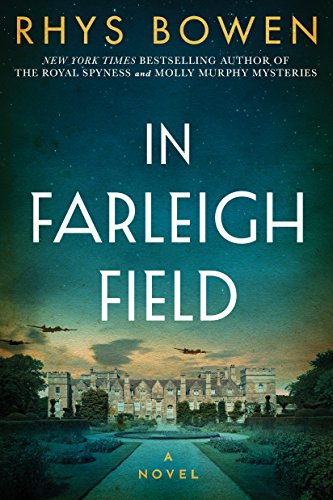
“Instantly absorbing, suspenseful, romantic, and stylish—like binge-watching a great British drama on Masterpiece Theater.” —Lee Child, New York Times bestselling author
Winner of the Agatha Award for Best Historical Novel, the Macavity Award for Best Historical Novel, and the Left Coast Crime Award for Best Historical Mystery.
World War II comes to Farleigh Place, the ancestral home of Lord Westerham and his five daughters, when a soldier with a failed parachute falls to his death on the estate. After his uniform and possessions raise suspicions, MI5 operative and family friend Ben Cresswell is covertly tasked with determining if the man is a German spy. The assignment also offers Ben the chance to be near Lord Westerham’s middle daughter, Pamela, whom he furtively loves. But Pamela has her own secret: she has taken a job at Bletchley Park, the British code-breaking facility.
As Ben follows a trail of spies and traitors, which may include another member of Pamela’s family, he discovers that some within the realm have an appalling, history-altering agenda. Can he, with Pamela’s help, stop them before England falls?
Inspired by the events and people of World War II, writer Rhys Bowen crafts a sweeping and riveting saga of class, family, love, and betrayal.
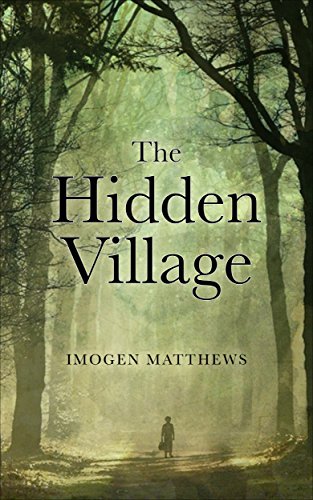
Wartime Holland. Who can you trust?
Deep in the Veluwe woods lies a secret that frustrates the Germans. Convinced that Jews are hiding close by they can find no proof.
The secret is Berkenhout, a purpose-built village of huts sheltering dozens of persecuted people.
Young tearaway Jan roams the woods looking for adventure and fallen pilots. His dream comes true when he stumbles across an American airman, Donald C. McDonald. But keeping him hidden sets off a disastrous chain of events.
Sofie, a Jewish Dutch girl, struggles to adapt to living in Berkenhout, away from her family and friends. As weeks turn to months, she’s worried they’ll abandon her altogether.
Henk Hauer, head woodman, is in charge of building the underground huts and ensuring the Berkenhout inhabitants stay safe.
But many grow suspicious of his liaisons with the Germans. Is he passing on secret information that could endanger lives?
All it takes is one small fatal slip to change the course of all their lives for ever.
Review, May 2018:
"It's a cracking book, gripping, sensitive heartfelt and excruciating all at the same time. I've already recommended it to loads of people. It's a wonderful story as well and the characters are so human. You do a wonderful job of not making them 'war caricatures' that so often happens in literature set in that time, but they all come across as believable humans, with flawed personalities caught in personal as well as political turmoil. Although it's a book set in war-time, it's more a book about people and their relationships struggling in a given situation; the war is the backdrop. Which is as it should be. Human stories first. I'll be sad to finish it!" - Liam Gerrard, BAFTA-nominated actor.

• Pride and Prejudice was only half the story •
If Elizabeth Bennet had the washing of her own petticoats, Sarah often thought, she’d most likely be a sight more careful with them.
In this irresistibly imagined belowstairs answer to Pride and Prejudice, the servants take center stage. Sarah, the orphaned housemaid, spends her days scrubbing the laundry, polishing the floors, and emptying the chamber pots for the Bennet household. But there is just as much romance, heartbreak, and intrigue downstairs at Longbourn as there is upstairs. When a mysterious new footman arrives, the orderly realm of the servants’ hall threatens to be completely, perhaps irrevocably, upended.
Jo Baker dares to take us beyond the drawing rooms of Jane Austen’s classic—into the often overlooked domain of the stern housekeeper and the starry-eyed kitchen maid, into the gritty daily particulars faced by the lower classes in Regency England during the Napoleonic Wars—and, in doing so, creates a vivid, fascinating, fully realized world that is wholly her own.
This ebook edition includes a Reading Group Guide.
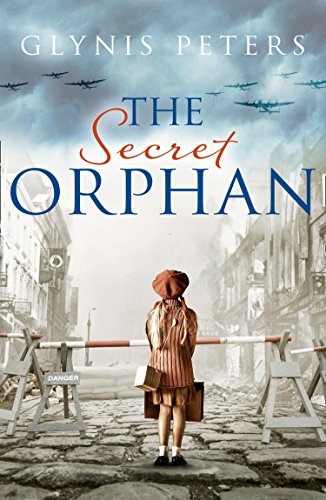
Keep her secret
Keep her safe
On the 14th November 1940, Hitler’s bombs rain down on Coventry. From the rubble of a bombed-out family home, a young girl is saved…
As the Nazis’ relentless bombs fall during the Blitz of Coventry, six-year-old Rose Sherbourne finds herself orphaned and under the guardianship of a Cornish farmer's daughter, Elenor Cardew.
Elenor knows that the only way to protect spirited Rose is to leave the city and make a new life for themselves away from harm. But soon Elenor discovers that Hitler’s firestorm is not the only thing she must fear when she learns a devastating secret about Rose…
With Rose’s life in imminent danger, Elenor turns to the only person she can trust to keep the deadly secret, heroic Canadian pilot, Jackson St John. And amidst the destruction of war, an unlikely romance blossoms as they find a way to protect the child they have both grown to love…and each other.
Readers LOVE The Secret Orphan:
‘Keeps you wanting to read into the small hours’ Lisa, Goodreads
‘The best and most beautiful book I've read in a long time’ Brid, Netgalley
‘Simply amazing’ Rikki-Doodlebug's Book Reviews
‘Captivated from beginning to end’ Jessyca, Goodreads
‘A gripping, page turner set in WWII … Loved it’ Amanda, Netgalley
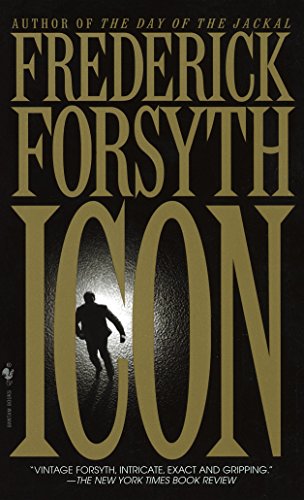
NEW YORK TIMES BESTSELLER • From the master of the novel of international intrigue comes a riveting new book as timely and unsettling as tomorrow's headlines.
It is summer 1999 in Russia, a country on the threshold of anarchy. An interim president sits powerless in Moscow as his nation is wracked by famine and inflation, crime and corruption, and seething hordes of the unemployed roam the streets.
For the West, Russia is a basket case. But for Igor Komarov, one-time army sergeant who has risen to leadership of the right-wing UPF party, the chaos is made to order. As he waits in the wings for the presidential election of January 2000, his striking voice rings out over the airwaves offering the roiling masses hope at last—not only for law, order, and prosperity, but for restoring the lost greatness of their land.
Who is this man with the golden tongue who is so quickly becoming the promise of a Russia reborn? A document stolen from party headquarters and smuggled to Washington and London sends nightmare chills through those who remember the past, for this Black Manifesto is pure Mein Kampf in a country with frightening parallels to the Germany of the Weimar Republic.
Officially the West can do nothing, but in secret a group of elder statesmen sends the only person who can expose the truth about Komarov into the heart of the inferno. Jason Monk, ex-CIA and "the best damn agent-runner we ever had," had sworn he would never return to Moscow, but one name changes his mind. Colonel Anatoli Grishin, the KGB officer who tortured and murdered four of Monk's agents after they had been betrayed by Aldrich Ames, is now Komarov's head of security.
Monk has a dual mission: to stop Komarov, whatever it takes, and to prepare the way for an icon worthy of the Russian people. But he has a personal mission as well: to settle the final score with Grishin. To do this he must stay alive--and the forces allied against him are ruthless, the time frighteningly short. . . .
Praise for Icon
“Vintage Forsyth, intricate, exact and gripping.”—The New York Times Book Review
“Another strong performance by a writer who knows exactly what he's about, and who here catalyzes narrative with another memorable protagonist, the stealthy and daring Monk.”—Publishers Weekly (starred review)
“One of his best works for a long time, which provides an all-too-real look at a chilling new millennium.”—The Sunday Times, London
